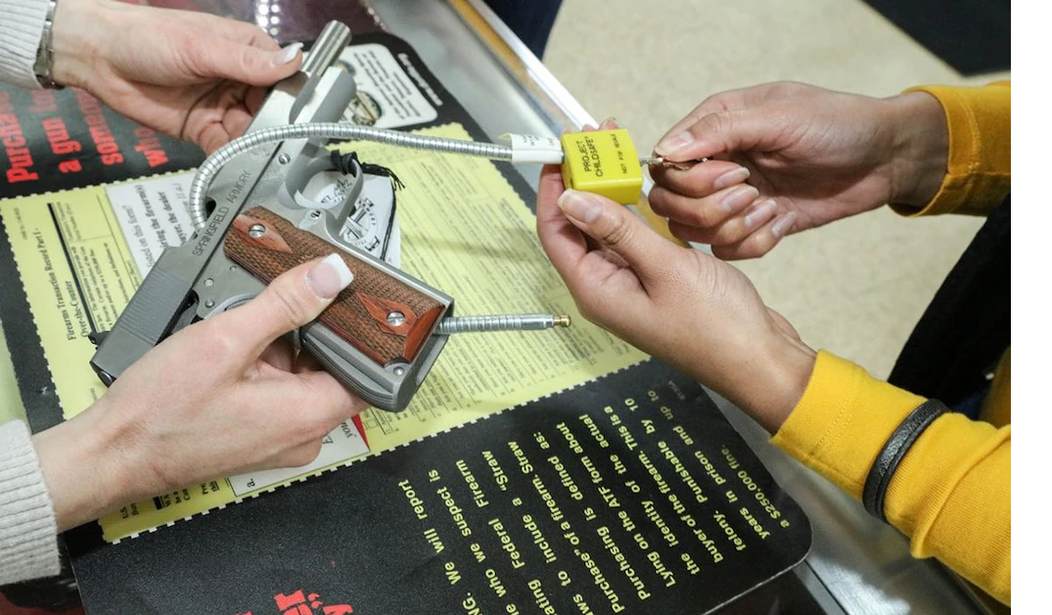Not even fellow gun control fans can offer unqualified praise for former Kimber executive and current gun control activist Ryan Busse’s new screed about the industry he called home for 20 years. In a new review of Busse’s book “Gunfight: My Battle Against the Industry that Radicalized America”, law professor and gun control supporter Lisa Pruitt does her best to sell her audience on the value of the activist’s latest work, but it seems to me that she has a hard time buying into a crucial part of Busse’s story.
Gunfight depicts the firearms industry as a big bully, but it hasn’t just bullied senators, members of Congress and, by extension, the entire nation. Part of the book’s tension comes from the parallel bullying Busse experienced as a dissident within. In one jarring scene, Busse’s boss at Kimber—angry at slumping gun sales at the end of Obama’s presidency—quips, “The problem is that we have Democrats. Let’s solve our problems, Ryan. How about we just kill all the Democrats? Well, all of them except you, Ryan. Let’s kill all the Democrats except Ryan.”
In the face of such an abusive workplace, Busse’s explanation for why he stayed at Kimber as long as he did is not always convincing. At several junctures, one fears he will sacrifice his marriage for the company and his career, as his wife repeatedly implores him to get out of the gun business. In the face of these pressures, one assumes that Busse was not only stubborn, but presumably well compensated, perhaps anticipating that Kimber would go public and deliver a windfall. That didn’t happen, and sanity—as well as the proverbial love of a good woman—ultimately prevailed when Busse left Kimber in mid-2020.
When Busse left Kimber in the summer of 2020, he almost immediately became an advisor to the Biden campaign. In the summer of 2021, Busse became a “senior policy advisor” to the gun control group Giffords. I think it’s fair to ask why, given Busse’s apparent distaste for the firearms industry and Kimber itself, did he continue to work for a gun company for years after he’d allegedly come to the conclusion that he was on the wrong team? It wasn’t like Busse suddenly had the realization that he was wearing the black hat last year. No, according to his own book, Busse came to that realization during the administration of George W. Bush.
Busse’s big pivot—at once personal and professional—came midway through the Bush administration when he spoke out in a high-profile venue against a Bush-Cheney plan to open public lands in the West to energy exploration. Among the places at risk was Badger-Two Medicine, Busse’s most beloved Montana hunting grounds and a place sacred to the Blackfeet tribe.
Busse didn’t see his pro-conservation position as being at odds with his employer or his industry, explaining he was “trying to help save places so we can sell more guns.” But his stance attracted attention from across the political spectrum because it marked him as a turncoat, “a red-meat gun executive who criticizes a Republican.” Busse writes of being “betrayed and embarrassed” at having “been duped into believing I was part of an industry that shared the values of my childhood—much of the talk about conservation and hunting was just another ruse to get people like me into the culture war.”
That was 2004. Busse didn’t walk away from the firearms industry for another sixteen years, despite his “betrayal and embarrassment” at having been “duped” by the firearms industry and conservatives in general. Why, exactly? In her review for The Daily Yonder, Pruitt suggests that Busse was hanging on in the hopes that Kimber would go public, but that would be an odd motivation for someone who supposedly hated everything that the firearms industry had become. If Busse really despised the industry, then why was he okay collecting a (presumably fairly substantial) salary from Kimber year after year after year? The obvious conclusion that most people will draw is that Busse cared more about his paycheck than his principles, and it sounds like his protests to the contrary haven’t convinced even comrades-in-disarms like Pruitt.
In Ryan Busse’s book, he’s the noble hero calling out the industry he once loved but now scorns. It appears that’s a bit much even for his target audience, which might explain why Busse’s new read has fallen flat in terms of sales. Gunfight was released on October 19th, but its sales have been abysmal (as of this writing the book is ranked 53,511 on Amazon’s Kindle store). Compare that to NPR correspondent Tim Mak’s new book “Misfire: Inside the Downfall of the NRA”, which is currently ranked 1,744 on the Kindle store even though it was only officially released today. Part of that may be because the NRA is a more interesting hook than Busse’s “battle” against the industry he belonged to for decades, but I think it’s also because Busse’s self-serving memoir just doesn’t pass the smell test.









Join the conversation as a VIP Member